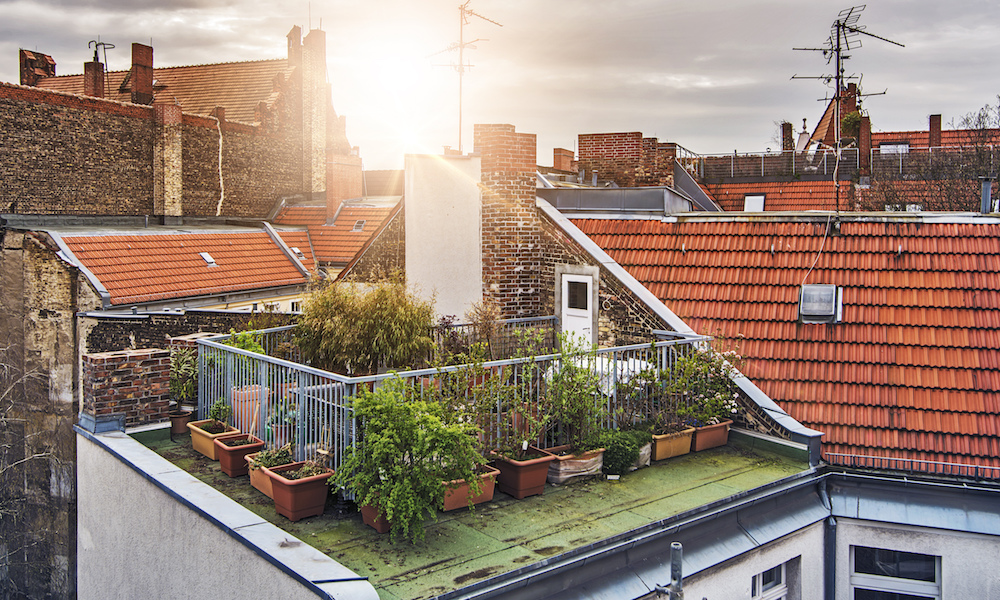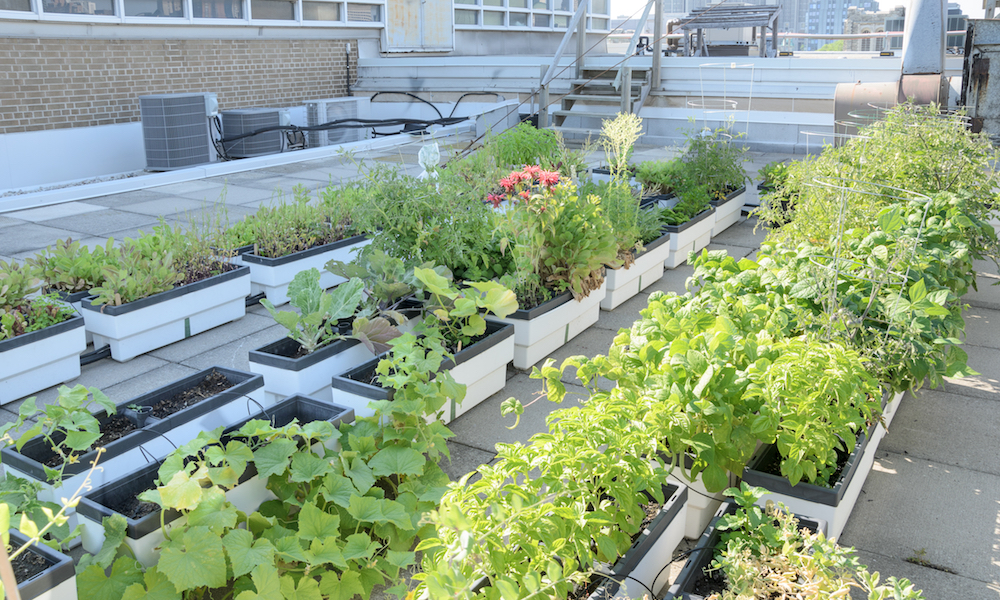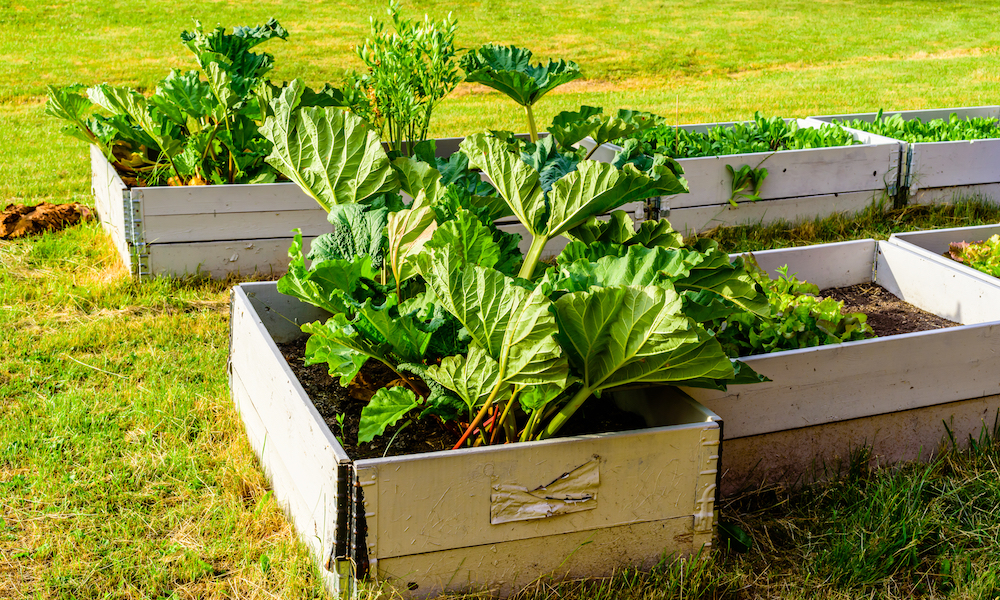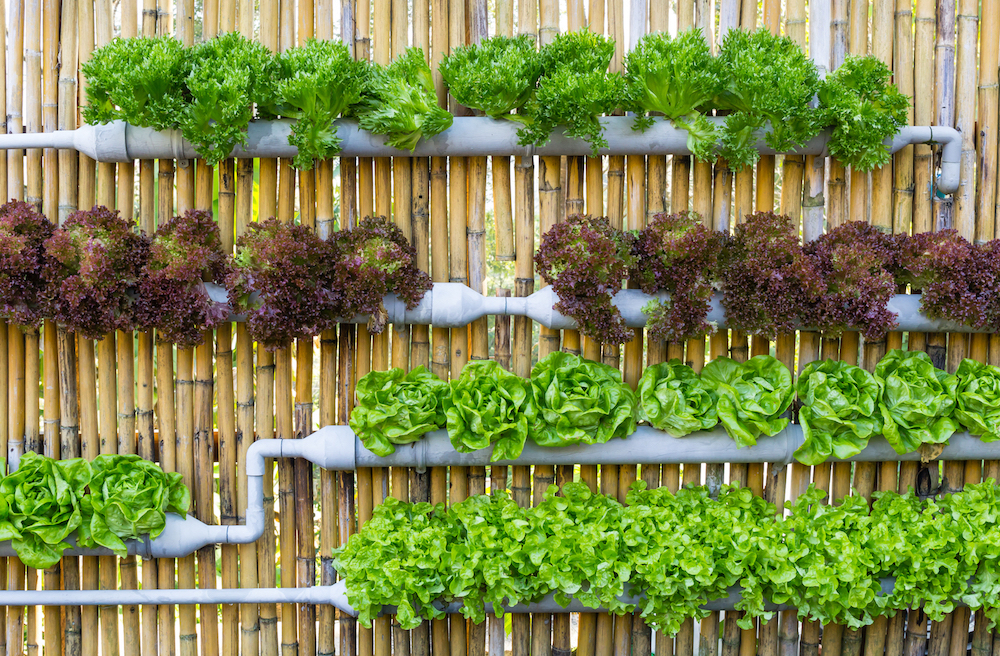With space limited and concrete abundant, gardening in an urban environment can pose some challenges.
Challenges aside, food crops can flourish in an urban setting. In fact, urban environments provide ample opportunity for avid gardeners and DIY masters. You just need to think outside the box.

Rooftop farm
Coercing your landlord into allowing you to build a farm on your rooftop doesn't have to be a difficult feat. Rooftop farms provide natural insulation for buildings and can result in lower air conditioning costs. They offer many social benefits for residents, making buildings very desirable for potential tenants. These economic benefits will be sure to get your landlord on board.
With several acres of forests being cleared for agricultural purposes every single day, rooftop farms use space that would otherwise sit idle. Rooftop farms shorten the distance between a food's source and the people who eat it, helping to reduce food miles and greenhouse gas emissions. Building and maintaining a rooftop farm is a fun, social project and a great way to get to know your neighbours.

Verge farm
Verge farming commenced on the premise that asking for forgiveness is better than asking for permission. Verge farming is a gardening revolution which involves planting vegetables on small nature strips alongside footpaths, which are usually managed by local governments. Verge farming is a fantastic initiative which aims to nourish local stomachs and encourage community gardening projects. Aside from potential disapproval from your local government, if built with haste, verge farming does come with potential risks. Lead is a large culprit of soil contamination in urban areas and can have detrimental impacts on human health, which is why it is vital to test the soil before getting started.
Farmlette
A farmlette refers to a flourishing food-plot located on a household lawn. Fleet Farming, a Florida-based volunteer run program coined the term after converting lawns into food-plots on a donation basis. To build your own farmlette, all you need is a lawn and a bit of gardening experience under your belt. If your soil is uncontaminated, you can start to grow fresh, in-season produce and reap all the benefits. You may want to consider companion planting to get the most out of your farmlette.

Community garden
Similar to rooftop farms and verge gardens, community gardens are communal spaces used for growing crops to feed the local community. Community gardens are usually located in parks, empty lots or privately owned areas. Like with all urban gardening, it's important to test soil for contamination before planting.
Vertical garden
If space is limited, growing fresh, delicious produce can be achieved by building a vertical garden. All you need is a wall and natural sunlight. There are many planters and pots on the market that can make vertical farming easy. However if you're a sucker for a DIY project, you can build your own vertical garden from an old wooden pallet or from hanging baskets.

As we tackle the global climate crisis and struggle with the ramifications of a growing population, urban gardening is a great way to act individually on climate change and help reduce the carbon footprint of our communities.
Read this next: Meet Your Australian Native Bees
We're in a climate emergency and it's going to take all of us to get out of it. That's why 1 Million Women is building a global community of women committed to fighting climate change with our daily actions. To join the (free) movement just click the button below!

